When GLAAD released their annual Where We Are on TV report this year, they announced that LGBTQ+ TV characters are at an all-time high. The headlines all over the internet were ecstatic. Gays win! Best year ever! But the reality is a lot more complicated than that. “Our community,” as GLAAD President Sarah Kate Ellis noted, “finds itself in 2019 facing unprecedented attacks on our progress.”
Every year, our TV Team compiles a list of our favorite and least favorite characters. (For example: 2018, 2017, 2016). It’s fun. Nothing excites us like loving our favorite stories out loud. But there was also a sense, as we approached this list this year, that it was so much more than just good-time reminiscence, especially when so much of the quantitative and qualitative growth we continue to see on-screen is for thin, cis, white, non-disabled queer characters. Our stories matter politically and they matter personally. When they’re good, it makes us so happy. When they’re bad, there’s so much more at stake than our annoyance or discontent. Politics and pop culture have always had a symbiotic relationship, which is why representation — legitimately good representation that explores the fullness of humanity of all LGBTQ+ people at the intersections of the myriad oppressions we face — is more important than it ever has been.
Here’s what we loved this year and what we didn’t like very much at all. We’d love to hear about your favorite and least favorite characters in the comments!
FAVORITE CHARACTERS
Heather Hogan
Anne Lister, Gentleman Jack
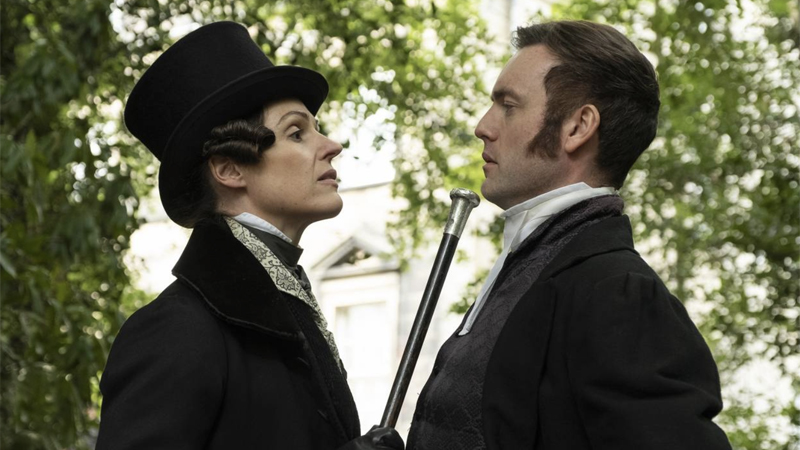
I think most LGBTQ people have those a-ha! fictional characters who finally allow them to look closely at and accept their sexuality and their gender, and I also think most LGBTQ people have those if-only fictional characters they wish had been around when they were whatever age or going through such-and-such thing, to show them the way. I’m going to do that second thing to Elena Alvarez in just a second, in fact! It’s much rarer for a real-life queer adult to stumble upon a fictional queer adult who reminds them of who they are right now, who reflects their grown-up gay reality back at them. Anne Lister is the first — and maybe she’ll be the only — character to ever do that for me. There are so many of her soft butch ways that just resonate. The masculine way she dresses, her stride and gait, the firmness of her gesticulations, going toe-to-toe with every man in her way; but the tenderness too, and the overwhelming need to hold it all together and make everything okay. It was a new thing, to me, to see that on TV. And also, for someone who, on a cellular level, is comprised as much of Jane Austen stories as I am of water, well — finally.
Sophie Moore, Batwoman

There were so many ways Batwoman could have gone wrong that actually went so, so right — and my favorite one of them is Sophie Moore. The source danger is that she’s a kind of one-dimensional flashback in the comics. The current danger is that she’s Kate Kane’s ex-girlfriend who is presently married to a man, so there’s a real tightrope there between some really longstanding and harmful bisexual tropes. Yet, Batwoman‘s writers are walking it deftly, and have, on top of that, made Sophie more than Kate’s love interest. Sophie is drawn to rules, structure, order, regulated heroism. She’s also a queer woman in love with a winged vigilante who got kicked out of a prestigious military academy for breaking their Don’t Ask, Don’t Tell policy and refusing to deny it or apologize for it. We’ve barely scratched the surface of Sophie and I can’t wait to see what we find as the writers keep digging.
Annalise Keating, How to Get Away With Murder
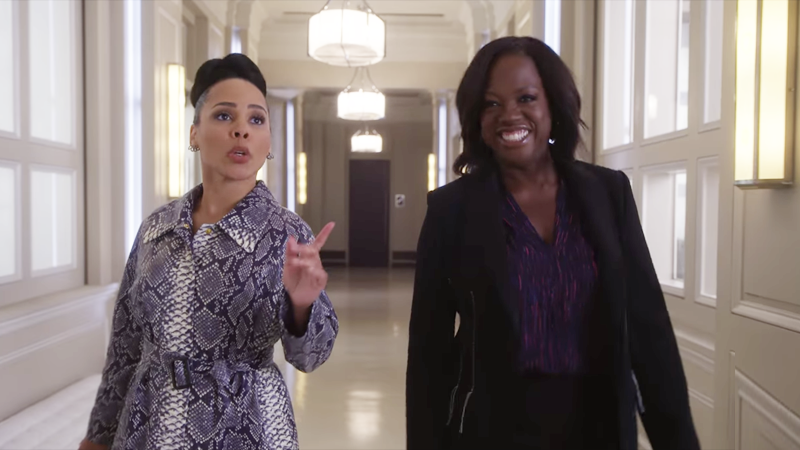
“I still believe, and I will say this until I go to my grave, that Annalise Keating and Olivia Pope are the greatest characters on TV,” is a thing Viola Davis told Variety this year, because the writers on HTGAWM aren’t “writing tentatively” for people of color. They’re writing bold. And they’re writing messy. Six seasons in, the fact that Annalise Keating exists and is played by Viola Davis still blows my mind. Viola Davis! That she’s bisexual on top of it it all and also now has a best friend who also is a queer Black woman? It’s honestly unbelievable and I feel fucking blessed to be living on this timeline to witness it.
Elena Alvarez, One Day at a Time

This brilliant, driven, dorky, heroic queer teen was always going to make the list for me. One Day at a Time is one of my all-time favorite shows and she is just so wonderful and refreshing. Exploring Elena’s anxiety disorder this season just made me love her even more, and also made me wish I could have known her so much earlier in my life. I only understood mental illness to be one very specific thing that manifested itself in one very specific way (violence against me) when I was growing up. I never saw someone like me — a compassionate, silly overachiever — dealing with panic attacks. Never! And to have a mother who didn’t tell her to snap out of it or that she was being emotional or over-reacting, but to sit beside her and gently, lovingly teach her to breathe through it? I’m crying right now just thinking about it. Also, Syd-nificant other? COME ON! THAT’S PERFECT.
Petra Solano, Jane the Virgin
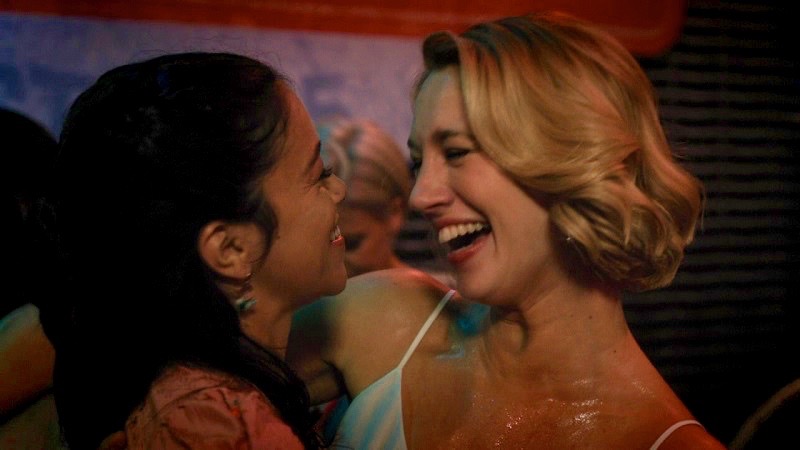
Petra is the opposite of every terrible bisexual TV character’s trajectory. Instead of being boldly proclaimed as A GAY CHARACTER and then reduced to one-dimensional writing and stereotypes before getting shuffled off to The Parking Lot of No Return, she was a just a caricature of a human being who evolved into a fully realized and deeply vulnerable and loyal friend/family member to Jane — and then she went and fell in love with another woman and got even more raw and real and wonderful. But don’t get it wrong. She never lost her edge. Love made her tender, but she absolutely still blackmailed her bleeding ex-husband who was trapped inside a teddy bear suit while lecturing him about bisexuality as the cops came to cart him off to jail.
Dex Parios, Stumptown
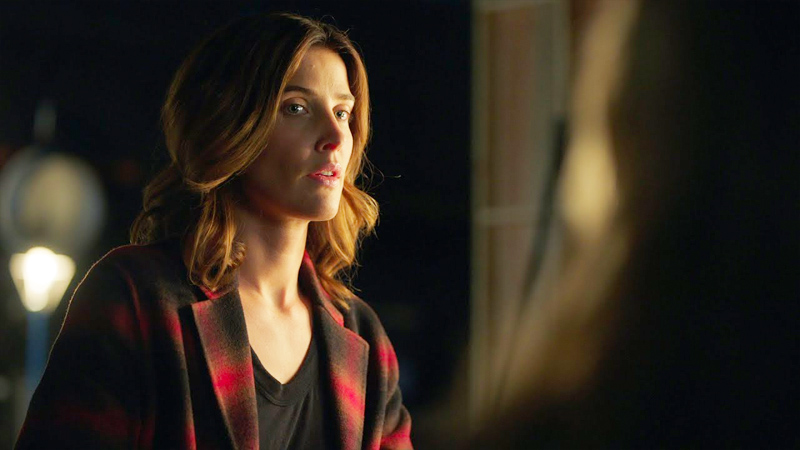
Stumptown itself has not lived up to my expectations. It’s RIDICULOUS that Dex hasn’t formed any relationships with any other female characters, and that her limited interactions with women are also limited to single-episode story arcs. RIDICULOUS. But gosh, I do love Dex. She’s a mess and she makes so many mistakes but she always wants to do the right thing and keep her friends and family safe. She’s also dealing with persistent trauma that’s never going to end. She’s self-destructive, but in a controlled way. She self-medicates, but not like before. She’ll never really “have it together” and she knows that and she’s not sorry for it. She’s doing the best she can with what she has, including a shocking variety of very cool ’80s jackets.
Kayla Kumari Upadhyaya
Cheryl Blossom, Riverdale

Unsurprisingly, I am still very obsessed with Cheryl Blossom, and the fact that the show has turned her into an Addams Family-meets-V.C. Andrews character makes me just love her more. Cheryl Blossom does not belong to our world. She does not speak like a human teen but rather like the town witch in a gothic horror story. I wish the Riverdale writers were more thoughtful in the writing of Toni Topaz this year, but I’ll always be thankful for the bizarreness of Cheryl and Toni’s most recent storylines — including burying and unburying bodies all the time????
Tegan Price, How To Get Away With Murder
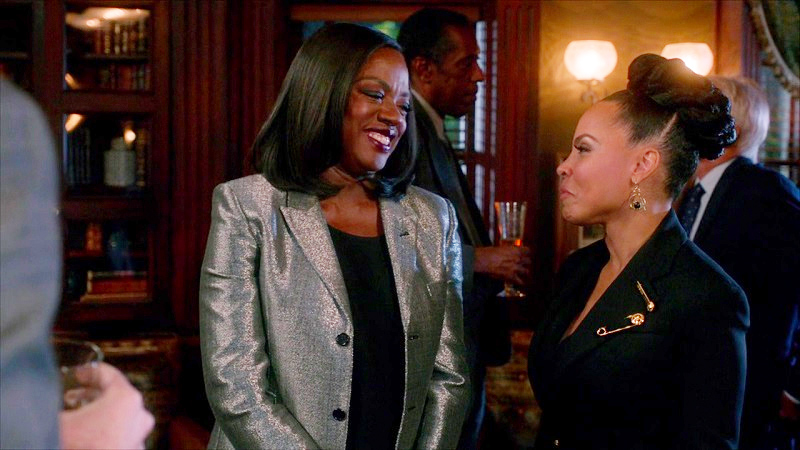
How To Get Away With Murder has been all over the place as it spirals to its series finale next spring, but the introduction of Tegan to the show’s arsenal of morally questionable lawyers and lawyers-to-be has been a blessing. She’s funny, smart, and occasionally vulnerable, one of Annalise’s few real friends and an angry gay divorcee. We love to see it!
Bette Porter, The L Word: Generation Q
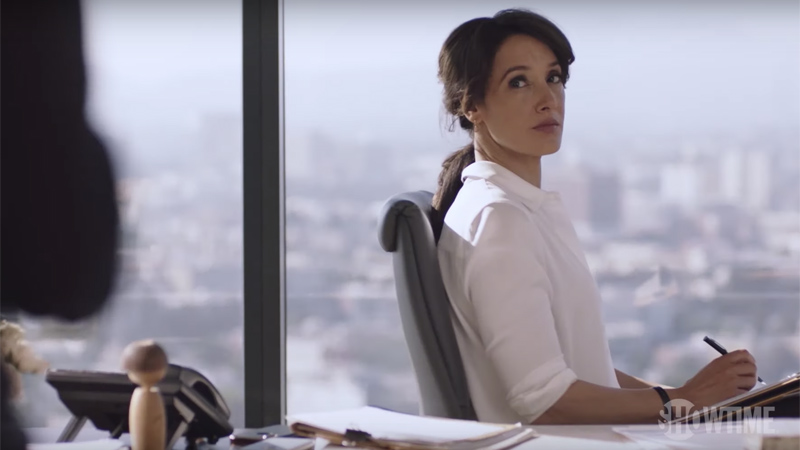
She’s back, she’s the mom of a teenager now, and she’s still ruining lives. Missed you, mommi.
Jules Vaughn, Euphoria
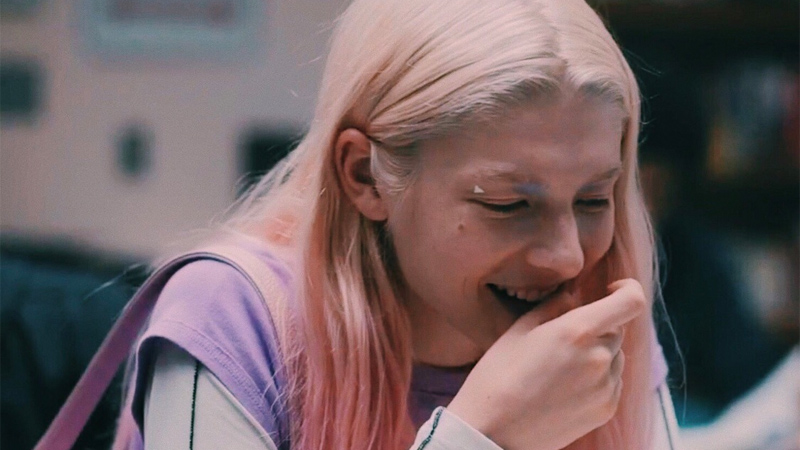
I didn’t love Euphoria as a whole (and I actively hated parts of it), but there are some little magical bits of it, especially when it comes to Jules and Hunter Schafer’s nuanced, visceral, specific performance. The show does messy friendship very, very well, and the love between Jules and Zendaya’s Rue is the most compelling part of the show.
Arthie Premkumar, GLOW
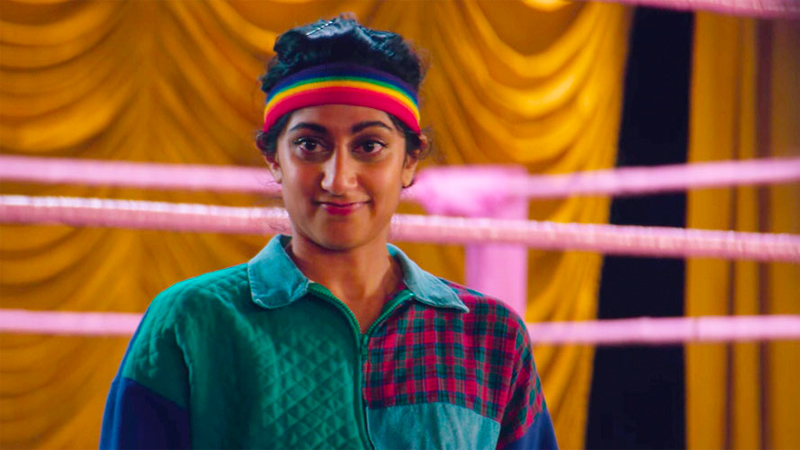
I went back and forth on whether to include Arthie here, because yes, she does continually hold a very special place in my heart, because I am a queer South Asian woman starved for representation on television, and season three not only lets her be hella gay but also includes LESBIAN SEX SCENES for the first time for the character and for the show. But that ends up being kind of… all we really get for Arthie this season. She doesn’t really exist outside of her relationship with Yolanda, who spends much of this season being pretty manipulative and yet it ends on a forced romantic note? In any case, I do love Arthie so much. And I can’t wait for the day when there are enough queer desi characters on TV for me to be able to pick and choose from.
Eve Fletcher, Mrs. Fletcher
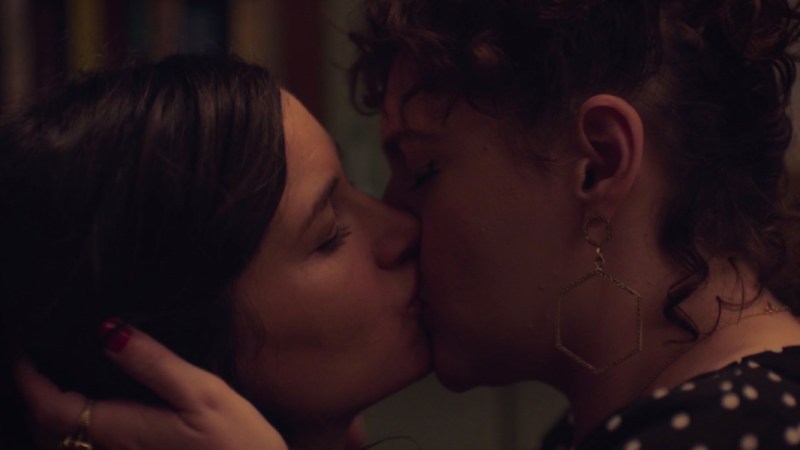
I think Mrs. Fletcher ended up being one of the most underrated television shows of 2019. It’s sexy, real, and every episode unfolds like a colorful short story contemplating desire, personal evolution, and vulnerability. Eve is a fantastically complex bisexual character, and the show is thoughtful in how it explores her fantasies and emotions.
Carmen
Kat Edison, The Bold Type

As the year winds down, I keep returning back to Kat Edison. I don’t think I saw another queer character this year whose characterization and storytelling choices around their queerness was so fully developed without having to depend on a romantic partner to bring it to screen. That’s very hard to pull off. I loved Kat more on her own (and later with Tia, and later again with Adeena once more) than I ever loved her in pervious years. I finally related to her. I related to the questions of how do you redefine your queerness after suffering your first break up? When previously your sexuality had been tied up in you having a girlfriend? I related to her drive and ambition and desire to do good in the world. And yes, I’m sure we are all going to look back at the year when Kat “ran for city council” and laugh at the ridiculousness of it — but what is The Bold Type if not a wee bit ridiculous and running on glitter and girl power? Kat Edison lost a girlfriend, but she gained herself. And that was journey damn well worth watching.
Tia Reed, Boomerang
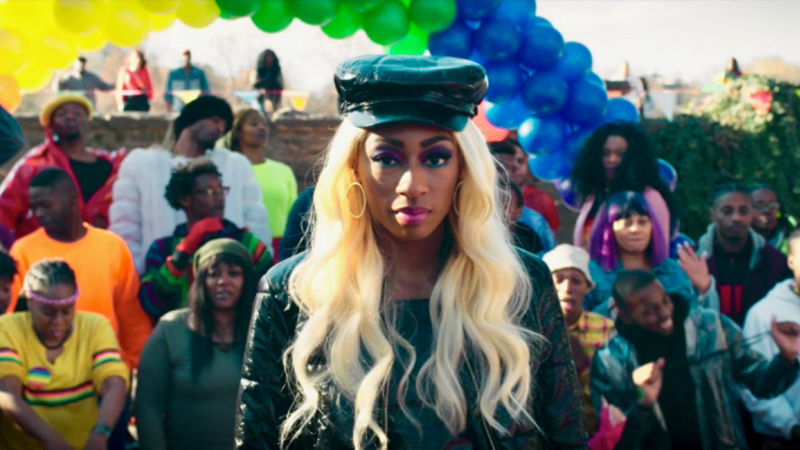
If you didn’t watch BET’s Boomerang, you missed one of the sleeper-hit best developed lesbian characters last year. It’s rare that we get to see a lesbian character in a half-hour comedy. Usually queer women’s stories are regulated to the high stakes tensions of “prestige dramas,” sci-fi epics, and soaps. In real life, lesbians and bisexuals are extremely funny and quirky, but television doesn’t seem ready to catch up. When I watched Boomerang last winter, I marveled at having such gay content front-and-center on the historically homophobic BET network that I didn’t give the craft of Lala Milan’s work enough credit. Sure, I laughed at Tia’s one liners and antics as they aired, but what’s stunning is that ten months later — I am still laughing. I can recall jokes in crystal memory. That’s talent. Yes, it’s important that Tia is one of the few queer characters on television who’s allowed to fully exist within a black space, and isn’t asked to check her queerness at the door. It’s important the she has black friends, and a black masc girlfriend. Sometimes, though, I worry that we get lost in the “representation conversation.”
Not that representation isn’t important! But also, everyone we are watching on screen — these are dedicated performers. Lala Milan has infectious energy and exquisite comedic timing; she can find the warmth in any conversational pause and twist it to her liking. And that is what makes Tia so memorable.
Candy Ferocity, Pose
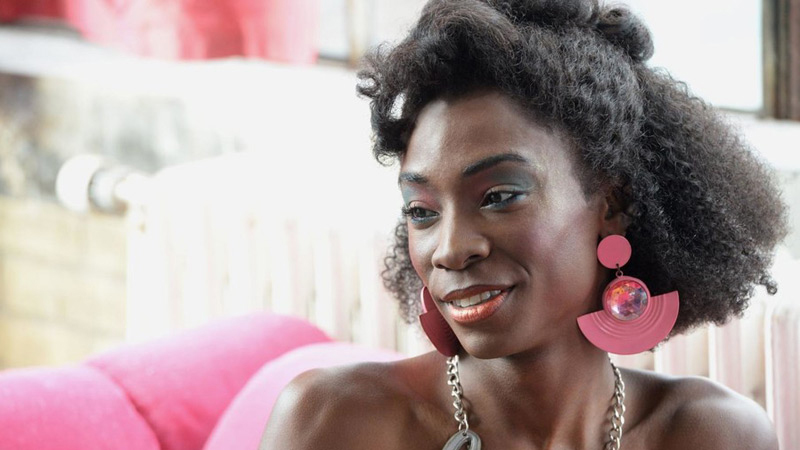
This is controversial, I realize. I want to be clear right away: I do NOT agree with Pose’s decision to kill Candy Ferocity. I don’t think there was anything to be learned from (re)traumatizing it’s largely black and brown, trans and queer audience by showing her death, particularly in the gruesome way it was showcased. I was livid when that episode aired. One of my biggest editorial regrets this year is that I didn’t make space on our website for those grievances to be aired. They needed to be. Pose should be held accountable for those decisions, especially by the QTPOC folks that their show represents and serves.
OK, that all said and true: As the season progressed, I loved getting to know Candy through her afterlife. Angelica Ross found such life in Candy’s death and it was absolutely, hands down my favorite performance this year. It’s December and when I close my eyes it’s still July, and Candy is singing to me in a red shimmering dress. I close my eyes and it’s August, and she’s on a girl’s trip with her sisters peering down and smirking at me from her sunglasses. I close my eyes and her spirit is still there — with me. Not many actors could have pulled that off, but Angelia Ross is an impeccably unparalleled talent.
Emma Hernandez, Vida
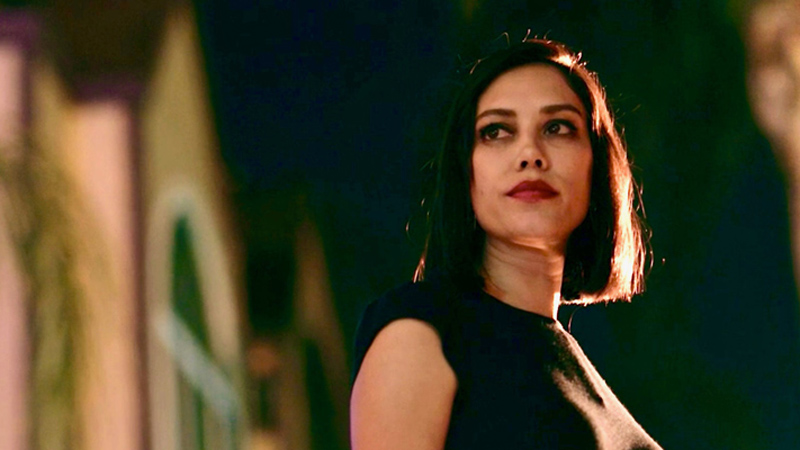
Vida found itself in a difficult and unenviable predicament. It had one of the strongest first seasons of television I’ve ever seen. A true masterclass of the art form. How do you top coming out of the gates so strongly? The second season of the show is a bit more uneven, but I found it nonetheless mesmerizing, if only because it was so damn messy. And if we’re being real with ourselves, queerness is messy. I’ve never seen a protagonist like Emma Hernandez, who is so full of pain but trying to find these small spaces of reconciliation with her past and her hurt — whether that’s through some pretty complicated sex across the gender spectrum or quiet attempts at understanding with her sister and stepmother. Emma’s carrying her entire family’s future on the small frame of her ice cold shoulders. She definitely doesn’t always get it right, but my goodness — watching her is magnetic. You quite simply cannot stop rooting for her and for her utter complete mess, you know?
There’s a fine dance that can be struck between performer and writer, and Michel Prada and Tanya Saracho have found it in each other. They’re creating pure magic. I hope they never let go.
Batwoman, Batwoman
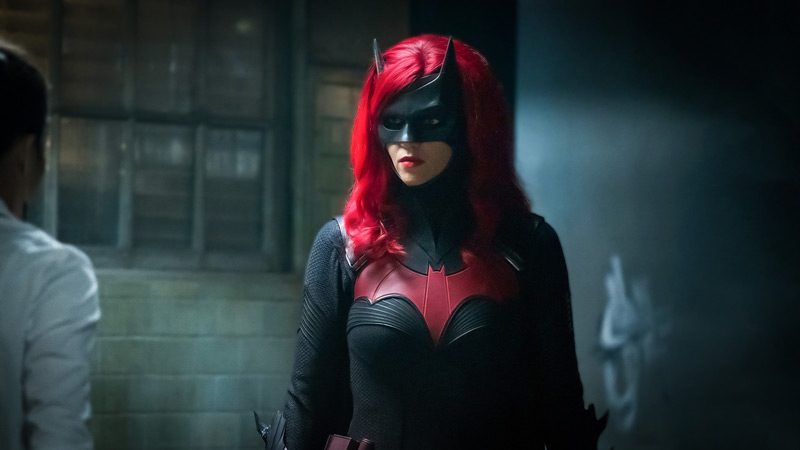
The other day I was joking that I didn’t necessarily mean that Ruby Rose’s take on Kate Kane was one of my my favorite performances this year, as much as I was fully prepared to hate their version of Batwoman, and instead — I really don’t. Batwoman is easily one of my favorite queer television shows of the fall, and certainly my favorite superhero story of the moment. Given how trepidatious I felt last spring about this entire shebang, that’s no small feat. I remember the first time I saw the trailer — and then the press screener — for Batwoman, I was stunned with a single thought: Ruby Rose might actually just pull this off. And you know what? They really have. I felt like that deserves some acknowledgement, so here I am: Way to go, Ruby Rose. Despite all of our collective fears and the entire queer world’s eyes thrusted upon you, you are somehow really pulling it off.
Riese
Sarah Finley, The L Word: Generation Q
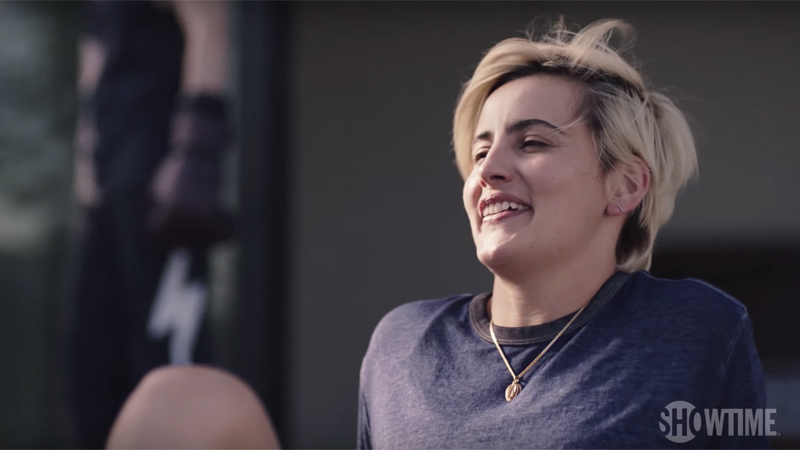
Finley, Generation Q’s charming grifter with a complicated relationship to church and (her home) state, is a character. Like literally she’s a character, but she’s also a person that if she existed in real life, you’d be like “she’s a character.” She’s that one-of-a-kind person in your friend group whose presence is never forgotten and when she’s not around, it feels like something is missing, the same way you might feel when your adorable dog is at the groomers. She offers comic relief, is a winningly extroverted foil to Shane’s withdrawn intensity and steals every scene she’s in.
Abbi and Ilana, Broad City
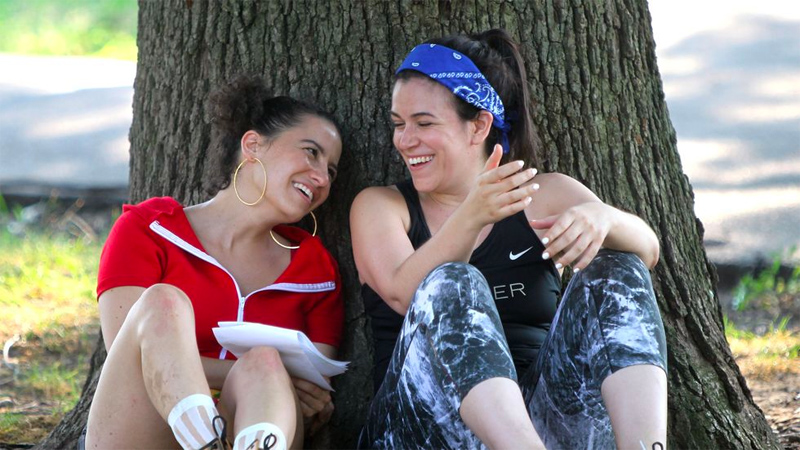
Broad City did so much for queer representation by the time it ended its five-season run on Comedy Central — including its acknowledgment of bisexuality as an identity that transcends romantic relationships and its centering of a goofy, self-indulgent, transformational, hilarious and undeniably epic romantic friendship unlike anything we’ve seen on television before.
Kay Manz, Mindhunter
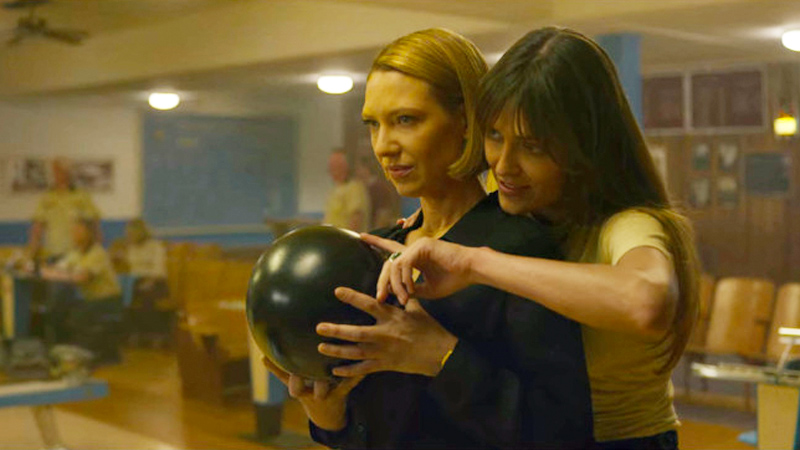
Okay so Wendy was gay in Mindhunter’s first season, but her girlfriend was one of those blink-and-you-missed-her types that always seem to be attached to the complicated female detective/investigator who is gay but not TOO gay in so many shows of this nature. But in Season Two she got to have a real relationship with a woman who usually wore sleeveless shirts, thus revealing her very attractive arm situations. She challenged and changed Wendy in difficult and important ways that also opened Wendy up to us.
Abby, Work in Progress

It’s hard enough to find a butch dyke side character on television, let alone a show about a butch dyke. Middle-aged men wondering what the fuck the point is are a standard of half-hour prestige television, but a self-described “fat dyke” eating one almond every day on a nihilistic march towards death and alienating most of her peers falling for a (much younger) trans guy? That’s a new fucking story! And so far I’m very intrigued by it.
Hen, 9-1-1
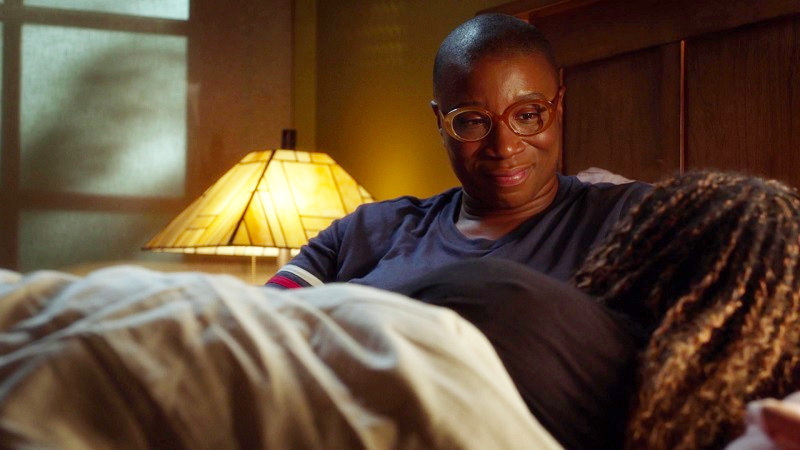
9-1-1 isn’t a typical procedural — the personal lives of the main characters aren’t sidelined and often take center stage. (It helps that everybody in the ensemble has decided to date… each other.) But even under those circumstances it felt unlikely we’d ever get to see a real fleshed out storyline for lesbian EMT Hen (played by Aisha Hinds, who also played gay in Under the Dome). This season we saw her and her wife, Karen (played by Tracie Thoms, who also played gay in Rent, UnREAL and The First) struggle with their attempts to get pregnant and then deal with Hen’s PTSD after a deadly vehicle crash. It’s a rare opportunity on television to see a black lesbian couple living out their complex adult lives within work and out of it, telling a story that never felt less important than the others. Through it we’re seeing so much more of who Hen is and what marriage looks like, brought to you by two women who are VERY GOOD at playing gay.
Drew
Rue Bennett and Jules Vaughn, Euphoria
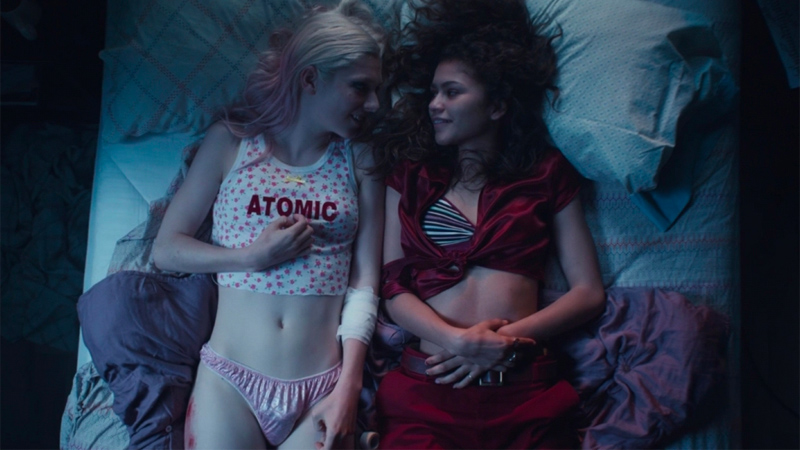
As you might know, I have, um, complicated feelings about Euphoria. But God I love Rue and Jules. Because of Zendaya and Hunter Schafer’s astonishing performances, they don’t feel like mere characters to judge by Sam Levinson’s writing, but real people separate from the frustrations of the show. Since the first season ended I’ve found myself missing Rue’s wise for her age world-weariness and Jules’ determined joie de vivre. The way they intersect with one another and explode. Their specific teenage brand of messy, emotional fuck-up-ery. They are cooler than I ever was and cooler than I’ll ever be and I just want to watch them fall in love and friendship forever and ever.
Villanelle, Killing Eve

While the first season was a glorious introduction to my favorite lovesick assassin, the second season elevated Jodie Comer’s Villanelle in all the best ways. Her murders were more creative and brutal, her outfits more gorgeous and sharp, her accents even sillier, and her emotions even greater. More doesn’t always equal better, but with Villanelle, for me, it did. Bitmoji sucks if you have curly hair, so I’ve found when I need a cartoonish reaction in the group chat I always turn to Villanelle. There’s something about the way she’s a sociopath who cares too much, mixing viciousness and innocence and sexiness and terror, that makes her the perfect reaction GIF for everything. The first season I watched as Eve became obsessed with Villanelle. But this season the obsession was mine.
Emma Hernandez, Vida
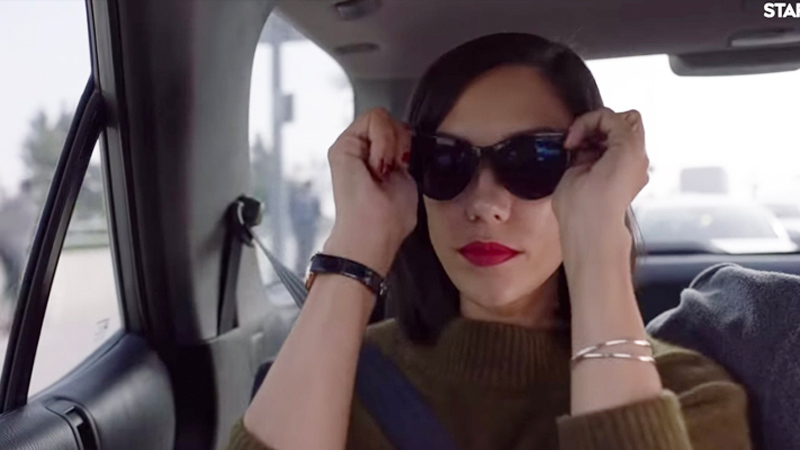
What else can I say about Emma that I didn’t already say when Mishel Prada won a Gay Emmy for playing her? Prada’s performance is Emma. And yet, I can’t very well not include my very favorite character on my very favorite show. I love characters who are highly competent and totally in control. I love watching them crack. I love watching them put themselves back together – or be put back together. It’s comforting, as someone who tries to be highly competent and always in control. Despite our differences, I feel myself in Emma’s attempts to be a good sister, a good lover, a good citizen, and it’s a painful relief to watch her try. Also – and I cannot stress the importance of this enough – Emma is the hottest. Mean with a good heart? Distant but occasionally tender? A power femme more chaotic than Bette Porter? Emma Hernandez was created to ruin my life. Thank God she’s fictional.
Natalie
Nasreen “Nas” Paracha, Ackley Bridge
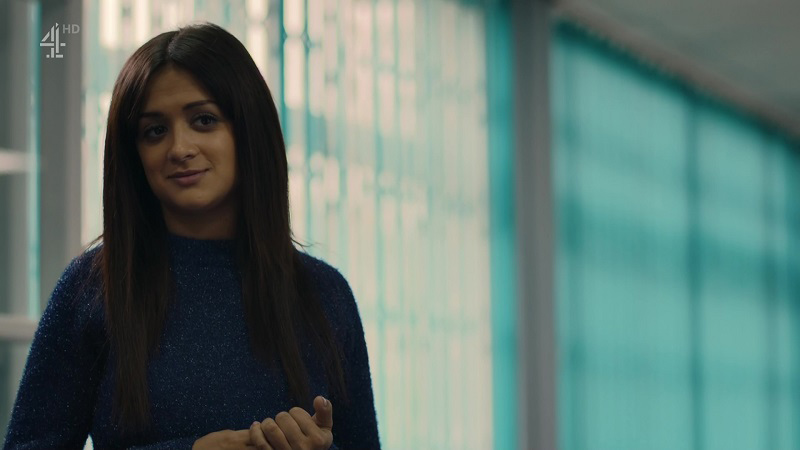
Early in the third series of Ackley Bridge, Nasreen Paracha is out for venegance after the death of her best friend, Missy Booth. She seeks out her girlfriend’s unsavory mates for help — she wants the culprit, Anwar, to pay for what he’s done — and they gleefully oblige. Despite never having known her, they shout, “this one’s for Missy, murdering scum” as they pummel him, recording the entire attack for prosperity.
The video makes its way across Ackley Bridge, stoking resentment between the whites, who think Anwar got what he deserved, and Pakistanis, who think he was targeted because of his race. Nas confesses to her mother that she was behind the attack and Kaneez is livid. Nas knows the stories about racist, anti-Muslim violence and should know better to incite it for her own ends. Nas offers a meek defense: for her, it was never about race.
“It is always, ALWAYS about race!” Kaneez shouts. “You should know that. You should bloody know that!”
Nasreen Paracha is a queer Muslim teenager growing up in a fictional British township. Her reality (however imagined) is so far away from my own. And yet, as I watched her mother chastise her for not remembering the realities of the world in which she lives, the words thump against my chest… and I’m reminded of the first time I’d had a similar confrontation with my father. I’d forgotten the world in which I lived and my father chastised me for my capriciousness. It is always, ALWAYS about race! Hearing Kaneez echo my father reminded me of the power of representation, not just to reflect our identities back to ourselves, but to shine a light on our shared experiences.
That said, I’d be remiss if I didn’t note the improbability of Nasreen Paracha’s existence on television. The depiction of Muslims on television remains exceedingly rare and queer Muslim characters are even rarer still. To have a young queer Muslim woman as, essentially, the lead character in an ensemble show… that’s groundbreaking… and with the third series of Ackley Bridge ending with Nas leaving for Oxford, who knows when we’ll ever have it again.
Tegan Price, How to Get Away with Murder

One day, after the final chapter of How to Get Away with Murder is written, I hope someone asks Amirah Vann or Pete Nowalk how long they intended Tegan Price to be a character on the show. When Tegan Price first emerged at Caplan & Gold as Michaela’s mentor in Season Four, I only expected that she’d last a season. I expected that she, like so many recurring characters before her, would push the story forward and then exit, so I tried not to get too attached. But Amirah Vann has this way about her — if you’ve seen her performance as Ernestine in WGN’s Underground, you know — of imbuing her characters, however slight their role, with so much heart that not getting attached becomes an impossibility.
It’s been remarkable to watch HTGAWM give Tegan’s character so much more depth this season and to watch how they juxtapose her story with Annalise’s. Women, and women of color in particular, rarely get the opportunity to be celebrated for their ambition but Tegan has owned hers from the day that we met her. She wants to change the world and saw rising at C&G as an opportunity to amass the power to make that change happen. Even as Tegan’s actions give us cause to doubt her sincerity — I need April to hurry up and get here so I can find out how she’s connected to Laurel and Christopher’s disappearance — her heartbreak over losing Cora and her genuine affection for Annalise ground her character and make her someone we want to cheer for.
Petra Solano, Jane the Virgin
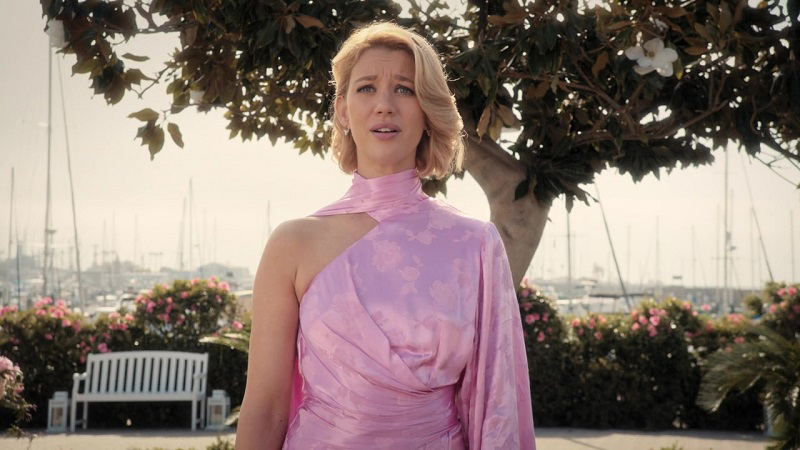
When we met Jane Gloriana Villanueva the first time, her passions included her family, God, grilled cheese sandwiches and writing…. and then, 99 episodes later, when we say goodbye to Jane Gloriana Villanueva for the last time, her passions included her family, God, grilled cheese sandwiches, writing and Rafael Solano. Things have happened, lives have shifted, but, essentially, the Jane that we meet at the beginning of Jane the Virgin and the Jane that we meet at the end aren’t that different from each other. Petra Solano though? The Petra Solano that ends JTV, with her girlfriend clinging to her side and her twin daughters smiling brightly nearby? She couldn’t be any more different that the Petra Solano we first met.
As I mentioned back in August, Petra is who she is in Season One because her mother made her that way. Magda taught her the way of the grift and that all relationships, including the one between mother and child, were transactional.
“I’ve had to lie my whole life and manipulate, and cheat, just to survive my crazy mother, and my psychotic sister, and my violent ex-husband. And, yes, those things made me who I am,” Petra admits to Jane “JR” Ramos early in Season Five. “But I can tell you this: I have changed a lot… and I’m going to change more.”
The impetus behind all that change? The other Jane. It wasn’t until she fell in with the Villanuevas that Petra has a model for what healthy relationships — between friends, between mother and child, between family — look like. Once she develops trust in those relationships, she’s able to believe in real love… and that’s when she finds JR.
Sorry, Rose, but the character development that turned an ice queen to a warm and loving mother and girlfriend might be the greatest love story Jane the Virgin ever told.
Valerie Anne
Nia Nal, Supergirl
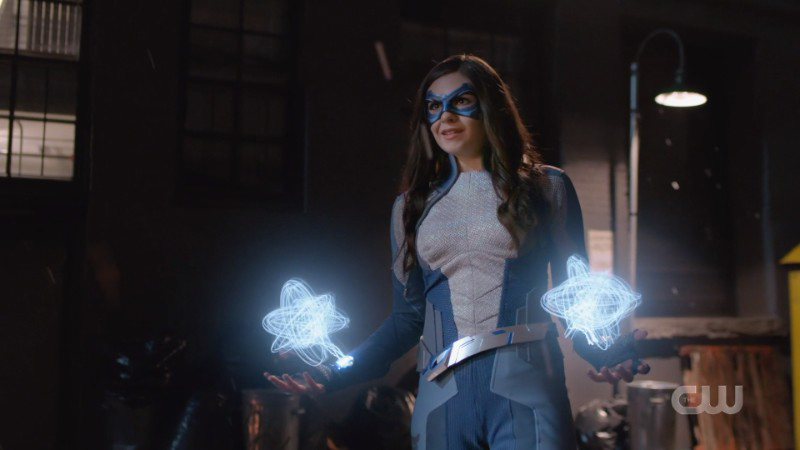
Alex Danvers has long since been a go-to on my year-end list of favorites, but this year Nia eked out a win in my books. I will always love Alex, but Dreamer has been such a refreshing gift to the past two seasons of Supergirl. I love that being trans is an important part of her story, and I love that the show draws clear parallels between Nia and Season One Kara: a little green but not without life experience, excited about everything, endlessly hopeful. Nia is the hero we needed, and I hope they let her suit up again soon.
Jenna Faith Hope, Impulse
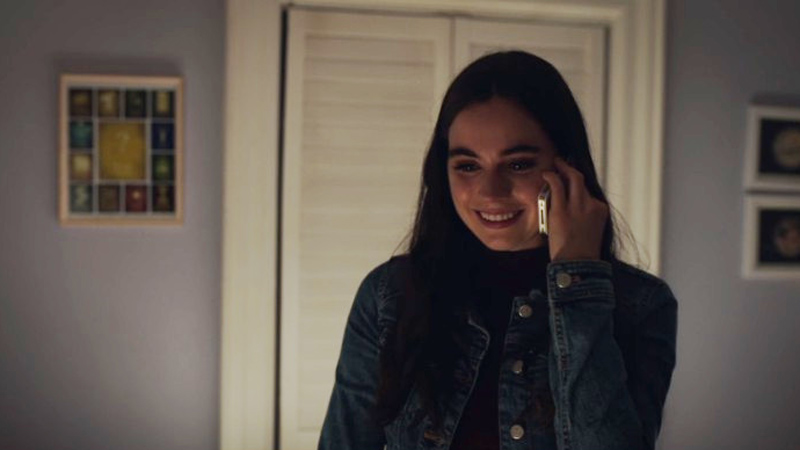
I’ve already written so much about why Jenna is so important to me and I could write so much more. The writing and direction and acting all handle Jenna’s queerness with such subtlety and care and I’ve never trusted a show to get a queer teenager right the way I trust this show. It was one of the most realistic coming out arcs I’ve ever seen, from the early clues to avoiding the truth to the inevitability. The acceptance and betrayal and fear and joy are all wrapped up in this adorable bundle of a girl, a reluctant but loyal sister, a recovering perfectionist, a girl who is in pain but trying her best. Jenna is another character I wish I had as a teenager, and one who is retroactively healing a lot of old wounds.
Elena Alvarez, One Day At A Time
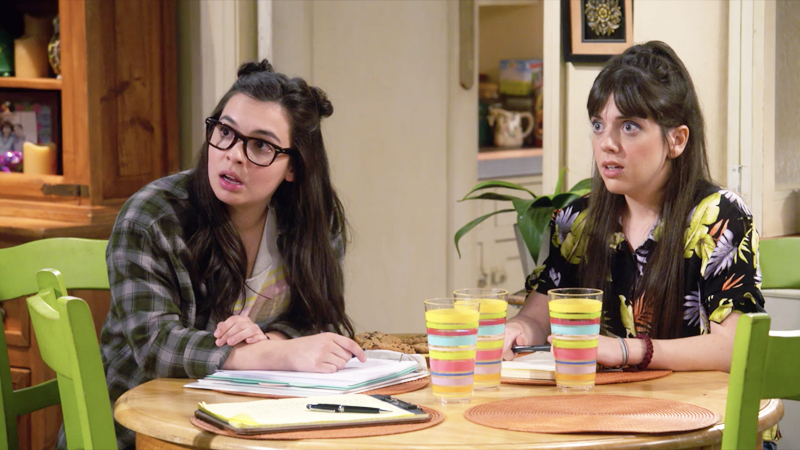
Elena Alvarez will forever be one of my favorite characters because she is exactly who my teenage self needed to see on TV so I know she’s helping so many others just by being her gay, nerdy, joyful self.
Emily Dickinson, Dickinson
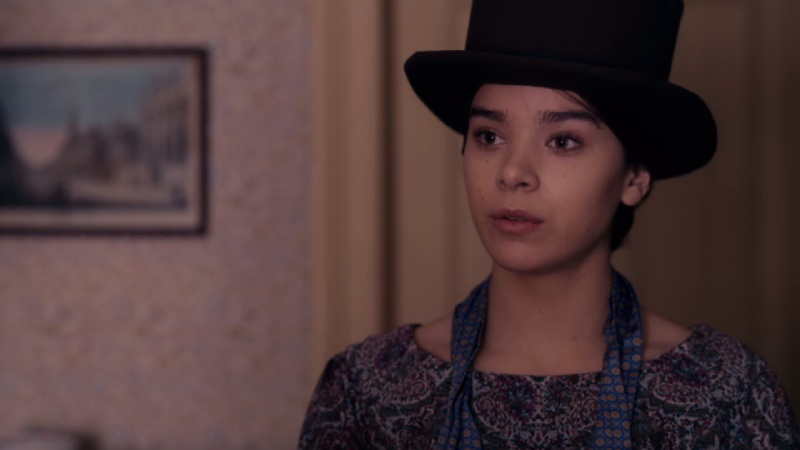
Dickinson was my favorite show this year. I watched it all in one weekend and wanted to lie on the floor and stare at the ceiling for a year when it was over. Emily represented all the most dramatic parts of me and I loved her for it. She is emotional and introspective in some of the same ways I am, wild and impulsive in a way I wish I were, defiant and radical in a way I’m learning to be. I don’t always love a period piece but the mix of modern and historical in this imagining of Emily Dickinson’s life was delicious and fun, it was funny and heavy and relevant. And it was so, so gay. Emily was exactly the best friend loving, poetry writing, death obsessed, patriarchy smashing character I needed to close out my 2019.
LEAST FAVORITE CHARACTERS
Heather Hogan
Karen Walker, Will & Grace

When Will & Grace brought Samira Wiley on to be Karen Walker’s love interest, I was like, “Finally! It’s taken two decades but at last they’re going to stop playing Karen’s bisexuality as a joke that was already tired in the ’90s!” Actually, it was the opposite thing. Karen and Samira Wiley met, hit it off, dated, grew closer, planned to attend Jack’s destination wedding together — and then, in the airport, the show pulled a reverse “Puppy Episode” and had Karen announce her straightness over the airport loudspeaker. I hate throwing the word “erasure” around because it dilutes it beyond recognition, but this was some of the stupidest and most disrespectful bisexual erasure I’ve ever seen. And why? What was even the point of it?
Claire Duncan, Tales of the City
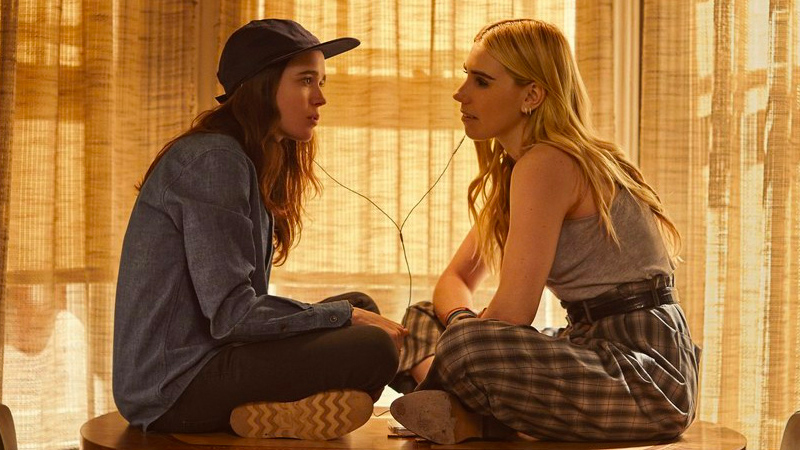
Claire was the most confusing part of Tales of the City to me. On the one hand, I get that Netflix’s reboot was leaning into the wacky pulpy twisty weirdness of the original, but on the other hand, I still have no idea what Claire was supposed to be to viewers or to Ellen Page’s character. She was like a spoiled and bratty documentary filmmaker blackmailing a trans woman to expose San Francisco’s gentrification issues? And she had an actual connection with Shawna? Or… no? She was using Shawna to get to Anna to do the blackmail? And Shawna, who couldn’t trust due to being abandoned as a child, did take a chance and trust Claire — and the lesson she learned was: your instincts are correct, never trust anyone? It’s all very bizarre and incomprehensible, and not in the good way I was consistently confused by the zany hijinks of the first few season of Pretty Little Liars.
Natalie
Anissa Pierce and Grace Choi, Black Lightning
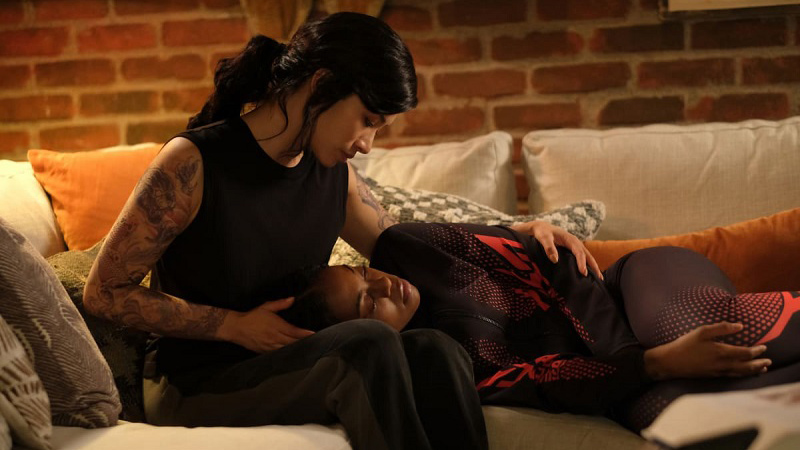
Writing these posts is always difficult, in part because as a community, we’re still grappling with what it means to be invested in qualitative representation instead of just quantitative representation. Also, because, given the nature of TV, it’s hard to disassociate these critiques from the actors themselves, despite the fact that the critique almost never about them. But just so there’s absolutely no confusion about my intention here: this post is not about Nafessa Williams or Chantal Thuy.
Williams and Thuy have sustained the #ThunderGrace fandom on the backs of their natural charisma and chemistry. I cannot imagine two other actresses having done so much when given so little. But Black Lightning is failing Anissa, it’s failing Grace, it’s failing its fans…and the responsibility for that falls squarely on the shoulders of its writing team.
I have given this show a pass for its shortcomings. I have watched as the female villains wither and die while the men — Gambi, Lala, Tobias, Khalil, O’Dell — come back, over and over and over again. I’ve watched as the show devoted episode after episode to telling the story of Jennifer clinging to her abusive boyfriend and as the show tried to convince me that abuse was romantic. I kept watching even as Grace and Anissa went weeks without scenes together. We’ll endure so much for the sake of representation…so even as the writers minimized and marginalized the show’s queer story, I kept watching. I kept watching because I wanted so much to see myself as super. I wanted so much to see us as celebrated heroes. I wanted to see us as bulletproof.
But this season, I finally reached my breaking point: In Chapter 4 (“Lynn’s Ouroboros”), Anissa’s dad, Jefferson, stops by her new loft and is surprised to discover Grace — who, apparently, he never even knew existed — there. Anissa slinks downstairs in her armor and we come to the realization at the same time as Jefferson: Anissa’s superpowers aren’t a secret from Grace. As with most of their relationship, the conversation where Anissa reveals her powers and that she moonlights as Thunder/Black Bird happens off-screen. We never got to see it.
It’s hard to overstate the significance of that conversation…how meaningful it would have been to Grace, who has had trouble harnessing her own powers, to know she had someone who understood her struggle or how meaningful it would have been for Anissa, who’s struggled with emotional vulnerability, to reveal this personal thing about herself. We missed the chance to see Grace’s face light up at the realization that she’s dating a superhero. We missed the chance to hear Anissa tell the only coming out story that’s ever been important on Black Lightning. No conversation between those two characters was more important than this one and we never got to see it. It is an inexcusable and infuriating omission…and it’s impossible to see its omission as anything other than homophobia manifested.
Anissa Pierce isn’t the lone lesbian superhero on the CW anymore. While I reject any effort to erase Anissa Pierce’s claim to the title of “first lesbian superhero,” as I take in Batwoman on Sunday nights and Black Lightning on Mondays, I wonder if we’re seeing, before our eyes, the difference between qualitative and quantitative representation…or, to put it more simply: the difference between acceptance and tolerance.
Cruz, Vida
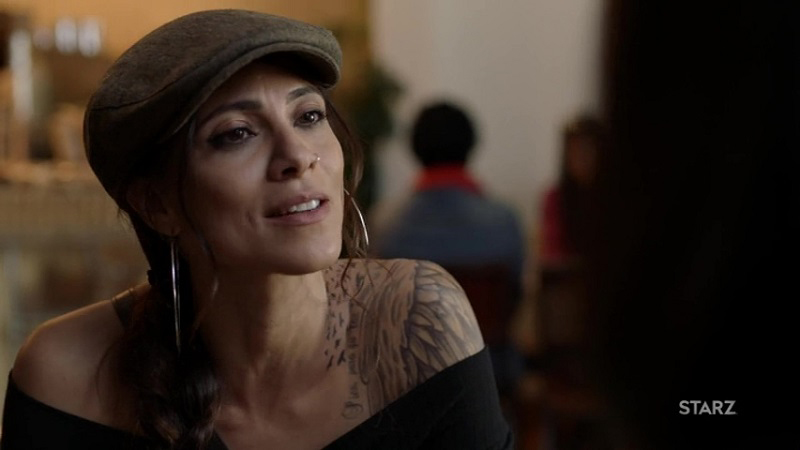
Midway through Vida‘s first season, Emma happens upon her ex-girlfriend, Cruz, in a bar. There’s a playful flirtation between them…from the adorable way Emma trips over her words when they first reconnect to the sensual way their bodies meld together on the dance floor…but then the ground shifts beneath them. With one simple provocation — See? Things aren’t so bad around here — Emma’s truth spills out. The revelations are a defining moment of the series for Emma but they’re also a gamechanger for Cruz. For years, she’s lived with the belief that Emma was running — from her, from them, from this place — but none of it was true and from that moment on, everything changes.
Later, all Emma wants to do is fuck the pain away and, for a while at least, Cruz allows it. But, in that moment, all Cruz wants to do is show her that they’re more than just an aggressive fuck…that, through distance and time, their love survived Vidalia’s internalized homophobia. After being denied all night, their lips finally connect and Cruz pours every bit of love and comfort into their kiss. And while the story rightly focuses on Emma — who is so overwhelmed by the intimacy of the moment, she has a panic attack — one thing is undeniable: Cruz intends to be part of that story.
It is hard to reconcile that version of Cruz — that indelible impression — with the Cruz we meet in Season Two.
The Cruz that wanted to shelter and comfort is gone, replaced with a Cruz who doesn’t protect her now girlfriend from the withering onslaught of judgment from her friends. The Cruz that saw Emma break in front of her, as she recounted being sent away from home twice for the sin of being her mother’s child in ways her mother desperately wanted to ignore, wouldn’t weaponize that knowledge against Emma, but Season Two Cruz does. The Cruz we met in Season One provoked, intentionally, but never cruelly, and yet, in Season Two, Cruz says, “Emma, you are the classic cautionary tale of why moms need to hug their children.” When the words come out of Cruz’s mouth, I was convinced of two things: 1. Emma and Cruz are over…Cruz has crossed the one line that you absolutely cannot cross with Emma and there’s no going back now; and 2. Season One’s Cruz would never have said that.
Still, all these months later, I don’t know why she had to.
Eve Rothlo, How to Get Away With Murder
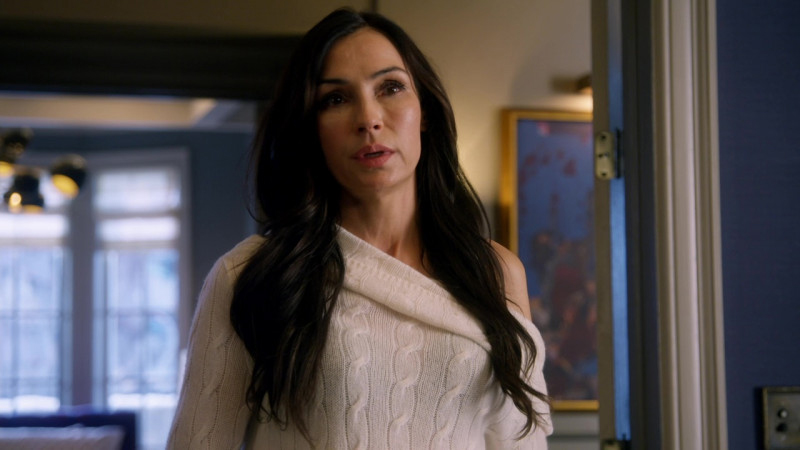
Drew
Eleanor Shellstrop, The Good Place
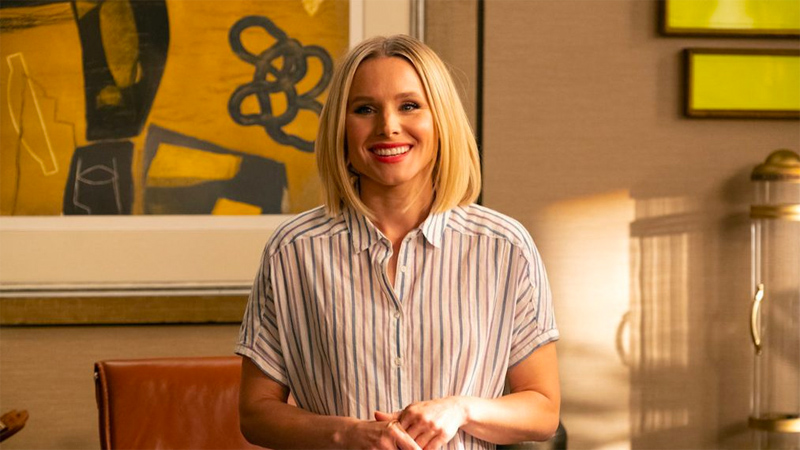
Okay, okay, OKAY. Let me explain. I love Eleanor. I really do. But I do not like her as a queer character. Bisexual characters obviously do not have to be romantic or sexual with more than one gender on-screen. Like in life there isn’t a behavior requirement to be bisexual. But that doesn’t mean an occasional punchline makes for a well-rounded queer character. There’s a difference between having a person’s sexuality not define them and all but ignoring that sexuality. We’ve seen Eleanor go through a lot of life – and a lot of lives – and I find it frustrating as the show winds down (beautifully I must add) that throwaway jokes about Tahani being hot are still all we’ve received. I don’t mind if more and more TV characters are lowkey sexually fluid, but I’m tired of attempts to celebrate Eleanor as a queer character or celebrate The Good Place writers for being so progressive that they ignore Eleanor’s bisexuality almost completely. It’s the one thing they shouldn’t be celebrated for as far as I’m concerned.
Clare, Derry Girls
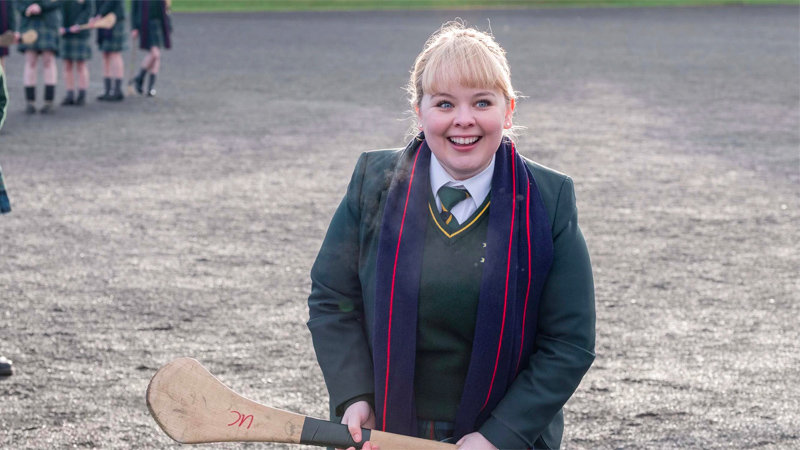
The first season of Derry Girls ended with a really wonderful coming out episode for Clare. It seemed to promise new depth to her character – and new queerness for the show. But the second season was pretty much devoid of both. Clare doesn’t need to share Michelle’s confident horniness or Erin’s awkward horniness, but when Clare’s lesbianism is treated as a mere label, it feels frustrating in contrast with her friends’ teenage love lives. The new season brought a hot new teacher and a hot new student and neither storyline even addressed Clare’s possible attraction.
It just feels like show creator Lisa McGee doesn’t really know what to do with an out character. Like with The Good Place, de-centering Clare’s queerness doesn’t feel radical – it feels safe. Placing these two characters side-by-side demonstrates that it’s not a matter of sex drive. Eleanor is consumed with horniness, whereas Clare doesn’t seem to think about sex at all. And yet in both shows the characters aren’t seen acting on their queerness. Which is fine! The writers can tell the stories they want to tell. But as more and more television includes queer people, I think it’s worth considering what we do and don’t define as queer television and what we deem worth watching specifically for its queer content. Having one out of five characters be queer should be the bare minimum. And if you don’t center that person’s queerness I’m going to lose interest.
Valerie Anne
Dex, Stumptown
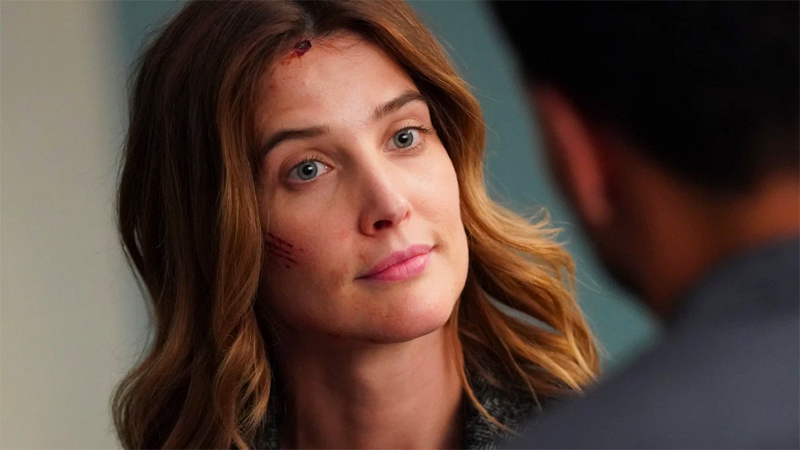
The Stumptown pilot was one of the best pilots I’ve ever seen, but the show has been slowly losing me as each episode goes on. Dex barely ever interacts with other women, and sure the one she did talk to the most was her ex-girlfriend, but I still had hoped there would he more women on the show, and maybe even some men Dex HASN’T slept with. But somehow the show has turned into being about Dex’s dating history/present instead of her badassery and I am bummed about it.
Jade, Why Women Kill
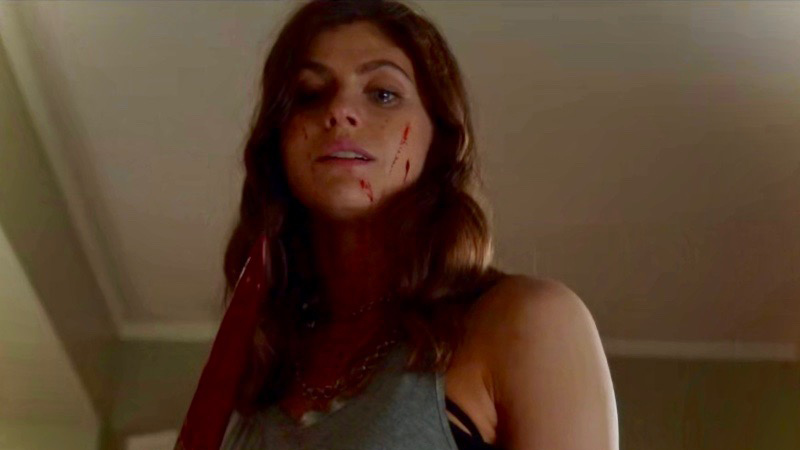
I…I guess I just thought this show was going to be about why women kill men. Jade came on screen and I was like, “Jade and Taylor are gonna team up and kill their boyfriend.” But instead they went ahead and decided to score a hat trick of harmful tropes before the show’s end.
Nora West-Allen, The Flash
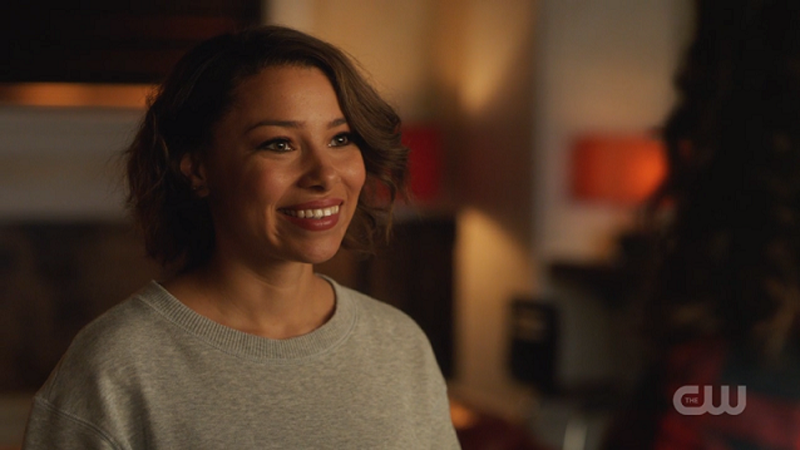
I was SO EXCITED when it was revealed that Nora was queer, especially since Jessica Parker Kennedy played one of my favorite queer characters of all time (Max on Black Sails) but alas, it was mentioned then forgotten. Not that I needed her to be in a relationship, because that’s obviously not what defines your queerness, but they could have at least worked it into the conversation one way or another. At least one other time. Anything. And then her last episode in 2019 had her entirely erased from the timeline. Which is a metaphor for what the show does to its queer women if I’ve ever seen one.
Carmen
Anissa Pierce and Grace Choi, Black Lightning
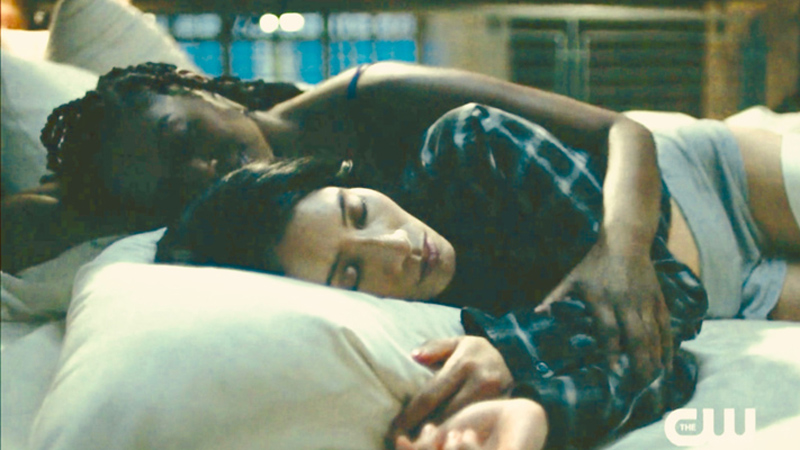
It’s ironic that I’ve written more about Anissa Piece and Grace Choi than any other couple I’ve covered for this website. Ironic because when Black Lightning first began, I had never been more excited for a black lesbian superhero and now I groan to complete my weekly requirements. Ironic because Black Lightning is actually, when it wants to be, a truly exceptional show, but it’s decided in the last year that writing cohesive storylines — especially for its queer characters — is apparently just too much work. There is no reason why Anissa’s love life shouldn’t have been given the same on-camera, seasons long, full treatment that’s been given to her straight little sister and her parents. I made excuses for far too long, I think we all did, really. We wanted to believe in the power of a bulletproof black lesbian superhero. We wanted to believe in a shapeshifting bisexual Asian tough-as-nails badass with a tough past. We were right to believe. They deserved our faith in their love. Even when the writers of Black Lightning showed over (and over!) again that they weren’t willing to do the same.
This year, Heather and I made the difficult decision to move Black Lightning from full recaps to our weekly Boobs on Your Tube television roundups on Friday. A lot of factors went into that decision that aren’t just about the romantic pairing on screen, but it’s also true that I no longer wanted to reward minimal effort and bad behavior. Nafessa Williams and Chantal Thuy are kinetic together; they’ve found such depth and caring in Anissa and Grace, despite being only given the scraps of the table to work with. My point is — they shouldn’t have been given only the scraps to begin with. We should demand more. And from now on, we will.
Eve Rothlo, How to Get Away With Murder
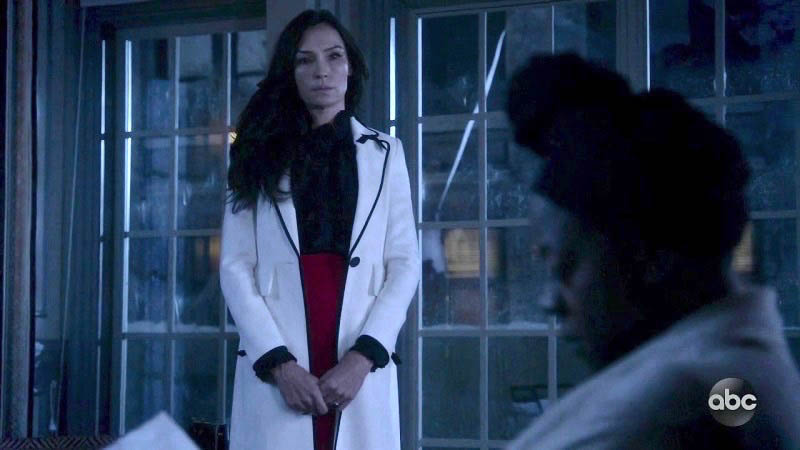
There’s a narrative structure to storytelling. Yes, writing is an art form, but there’s also basic building blocks that are mechanical. Stories have a beginning, they crescendo across an arc, and then they end. I know I sound incredibly basic, but please follow me for a moment — Even Rothlo came back into Annalise Keating’s life at the start of How To Get Away With Murder’s second season (the beginning); through both flashbacks and their “present time” relationship we learned that Eve and Annalise were lovers in law school and that Annalise had broken Eve’s heart, but they were never fully over each other (the story arc); and then Annalise let Eve go to follow her new life and love in San Francisco (the end). I always believed we might see Eve on last time before the show was over, that she might be Annalise’s final love — her “end game” of sorts. Still, this story had found a satisfying conclusion on its own. Basic building blocks.
So why did Pete Nowalk decide to undo all his own writing and bring Eve back for a “special episode” in which her only purpose was to be intimately cruel to Annalise (which was never Eve’s personality to begin with) and then have her disappear into the night once again — leaving Annalise with just tattered pieces of her soul to deal with? I have no earthly clue. For a while I thought Eve’s coming back was a stepping stone in allowing Annalise to find new love with Tegan Price, but that doesn’t seem to be happening either. As much as I’d love for a romantic flame to blossom between Tegan and Annalise, I’ve also come to respect them as platonic queer friends, which we rarely get to see on television. Still, the question remains, if Annalise and Tegan aren’t getting together, and if Eve isn’t coming back in some grand romantic gesture, why did Pete Nowalk re-open this wound at all? Why pour salt somewhere that was already stitched? It was a confusing and bad story choice, point blank.
Tamia “Coop” Cooper, All American
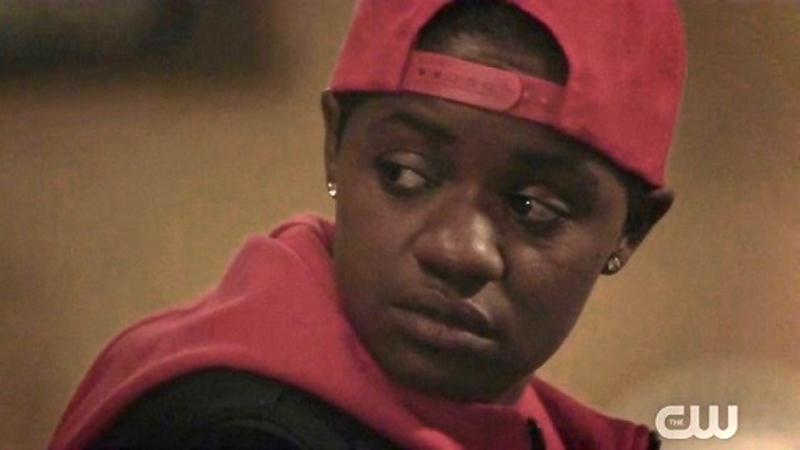
I don’t know what happened in All American’s writing room between Seasons One and Two, but the sidelining of Coop from being a central character of the series, rivaling on co-lead, to a nearly D List background player is absolutely egregious and appalling. I don’t have anything else to add — it’s wrong by any definition and the show should be working overtime to fix it.



Woah. Amazing list. I am so behind with watching TV shows, but now I feel prepped and ready to go for my summer viewing. (Southern hemisphere.)
Angelica Ross as Candy is a delight, but for me Domonique Jackson as Electra stole the show. That one scene at the restaurant with the white woman for me was thee best scene on TV this year. Her timing, performance & energy was wow. I also think she has the bi top energy.
I will agree with Abbi & Ilana two characters I will miss this year. Not often I get to see a show about the friendship between two queer Jewish women. Reminds me of my bff & I.
@needlesandpin, it is my greatest hope that one of the lead characters from Pose turns out to be bisexual. I’m partial to Blanca, of course, but you’re right about Elektra’s bi energy.
I’m hoping Elektra & Blanca in the the end date each other & live happily ever after.
Thank you for saying “so much of the quantitative and qualitative growth we continue to see on-screen is for thin, cis, white, non-disabled queer characters.”
I appreciate knowing you are keeping fat, trans, BIPOC, and disabled people in mind.
This is somewhat off the topic of the post, but does anyone here in the comments have recommendations for fat queer characters in TV or movies? Even fat het characters would be okay at this point. Orange is the New Black is too depressing & devastating for me to watch. This might be a great topic for a separate article if anyone is looking to write one, too.
Thank you for all the work you do, TV Team!
The only character that comes to my mind is Eddy from Vida. Emma’s step mother. There’s so little fat characters on TV in general that aren’t the butt of a food joke or the silly comic relief. Paula from Crazy-ex was awesome but not queer though.
Thank you, @margosf ! I love Eddy & Paula.
@mathilde A few shows/characters come to mind.
First, Shrill, based on the Lindy West book, features two fat characters in lead roles: Annie and her queer best friend, Fran. Drew reviewed the new Showtime series, Work in Progress, about a “fat queer dyke” that also might be of interest to you.
Also? Davia (Emma Hunton) on Good Trouble and Kat Hernandez (Barbie Ferrera) from Euphoria. Both of those characters are hetero but their respective shows have strong queer storylines as well.
Hope this helps.
@pecola Thank you so much! I have Shrill on my list. I forgot about Good Trouble & Davia. I have of course heard of Euphoria but didn’t know it had a fat character. Maybe I’ll have to get Showtime so I can see Work in Progress (& TLW). Thank you!
I’m surprised not to see any animated shows on this list! Last year’s list is what made me finally watch She-Ra (I mean, it was like 2 weeks after it had come out and friends had already said I needed to watch it, but seeing Adora and Catra on the favorites list made me go, “Okay, it’s time,” and watch the whole season in the following 24 hours). I know they’re not *exactly* canonically queer characters, but like… yeah they are. Catra and Scorpia would probably top my own list for this year. I suppose Steven Universe didn’t have a whole lot of content in 2019 (though Pearl and Garnet’s stories in the movie were beautiful), so I get that omission. Amaya on The Dragon Prince is worth keeping an eye on too–is she the first Deaf queer woman on TV since Jodi Lerner?
Also, glad to see Eleanor and Jade on the “Least” list! I’m afraid to insult The Good Place and have been worried that I was the only one who thought the presentation of Eleanor’s queerness was problematic. And Jade was…an insulting, misogynistic, biphobic, anti-polyamorous mess of a character/plot, and I don’t think I’ve seen any reviews mention it. Thank you!
I’d argue that an out teenage girl in Derry in 1995 wouldn’t know what to do with their sexuality beyond coming out either. And that relying on her old routines and patterns of interaction due to familiarity are likely. Although you are right in that they totally could have shown Clare be frustrated at now knowing she is gay, but not knowing how to be gay. I particularly liked when she said they don’t have height restrictions for being a lesbian, ‘at least I don’t think so’. Because omg the panic! Am I doing it right?!? So real!
I’m going to second this- and take it a wee bit further.
I think that in Season 2, there WERE a bunch of times where Claire’s sexuality was part of the plot. Yeah, she’s not given a girlfriend or a love interest- but like Gilbert said above, it’s not as if 1995 Derry was full to the brim with options for nerdy queer teenagers.
But, off the top of my head I can think of:
Right in the beginning, when she’s over at Erin’s family’s house, mortified beyond belief cause the family are talking about “wall-to-wall lesbians” and how The Lesbians are Very Talented People ’cause that that kd lang wan has a fine set of pipes on her.
Her friends ribbing her about how she doesn’t have to worry about whether the Protestant boys will like her or not.
Mae inviting Clare to the prom with her so she can have the cool-points of having A Real Lesbian Friend.
I think that Derry Girls S2 shows a TON of lovely ways that Clare’s gayness can be part of her everyday life even if she’s not got a love interest at all (yet). Which, honestly, feels a lot more true to my own awkward-90s-teenager years?
…also uuhhh I will clearly Defend Derry Girls To The Death, Forever.
So glad you pulled out all those moments! That dinner conversation had me in stitches and truly set the tone that, while it might not have been a central part of the plot, Claire’s queerness would not disappear.
There’s even subtler things too like all rainbow pins characters wear throughout season 2!
Dominique Diperro from Mr. Robot has been my fav lesbian character of the year on television. An absolute badass and an all around amazing person. Highly recommend checking out the show if you haven’t.
Hard same.
It’s like all of my teenage tropey FBI agent crushes were transposed into a realistic adult version.
Great list, thank you all so much! Funnily enough it seems that all your least favorite characters are from shows, I’ve stayed away from! I’ve become very cautious over the years. Articles like these really help me avoid shows, that have the potential to upset me.
ugh how cool would it have been if they had done a flashback to Eleanor making fun of the LGBT student group for being all earnest and political, and made her reluctance to deal with her queer identity an explicit component of her dirtbagitude
Hi, I’d like to respectfully disagree with Claire being “Worst Ever” I mean, aside from the part where she totally is.
I think Claire was a comment on class and priviledge.
The scene where she does the interview and tells someone how to phrase themselves to be more politically correct is the anchor scene for her character.
She served as a counterpoint to D’or,to the poly couple and of course to Shawna and Mrs.Madrigal.
I particularly liked the part that if she hadn’t been emotionally unavailable and evil Shawna wouldn’t have opened up to her.It was a refreshing take on “every emotionally stunted Shane only needs a Carmen to rescue her”.Shawna needed to get herself figured out,Claire was a catalyst for that and I loved that story arc, even though it was painful to watch.
I also like how she was about to tear down Barbary Lane because she was a judgmental, overpriviledged bitch who doubtlessly had a queer theory minor somewhere under her belt but did not have neither the emotional capacity nor the inkling of what community or family really meant.
It’s a combination of priviledge and of a feeling of superiority that’s just really destructive to community.
Maybe I’m giving the show too much credit,though;-)
I agree and share your opinions about Elena from ODAAT, Kate kane, Sophie from batwoman, Petra from Jtv (btw there’s a typo : “and fell in love with another woman” it should have been written “and fell in love with another Jane” :P), I’ll add Rosa from B99, Mel from charmed (currently there’s a lot of straight plot, but Mel is still rather awesome), Ava and Sara from LoT (If I do have some aggravation with s4, but none with those two) Casey from Atypical who delights me by her entire queerness, and gender expression free of labels. She is a bit of a brat at times but she means a lot to me anyway.
Also my animated fav with Pearl and Garnet.
As for the worst, I very much agree on Eleonor, and they have no excuses because it would be the easiest thing in the world for Eleonor’s bisexuality to properly exist as more than a ghostly presence. I am with you with Anissa and Grace also.
That picture of Candy is so gorgeous. She looks like she was flung out of space.
I know this isn’t the place for this but can we PLEASE talk about how devastating the last episode of Batwoman was?? I would LOVE to see a recap, or at least a discussion of Sophie and Kate!
Ugh hard agree on Eleanor…while The Good Place is truly one of my favorite shows, I was legitimately confused when I saw people talking about a bisexual Eleanor. I thought I had missed her coming out or an actual discussion of her sexuality, but no, we’re just supposed to read queerness in a couple of offhand jokes. (Also it doesn’t help that I don’t really feel like Eleanor and Chidi have romantic chemistry despite the show’s commitment to them being endgame…it’s not like they have such fire sexual tension that they obviously need to end up together, so why not explore Eleanor and Tahani??)
I was reading the part like when did she even come out?? I don’t think Eleanor was ever intended to be queer. Those off-hand jokes about Tahini being hot (don’t get me wrong she definitely is) are just supposed to be examples of her “wild and crazy” personality.
I agree that her sexuality was played mostly as a joke, and I think this misstep is the biggest disappointment of an otherwise phenomenal show, but I disagree that she wasn’t intended to be queer. They gave her Tahani as a soulmate in one of her (brief) memory resets, and Kristen Bell confirmed at one point that she was meant to be read as bi.
They definitely intended for Eleanor to be queer. Not only does she lust after Tahani (and Janet), but she tried to kiss Chidi’s girlfriend, Simone and was super down to sleep with demon Eleanor.
She seems like someone who is definitely bi, but doesn’t actually hook up with that many girls in her real life.
Hmm are people really acting like there aren’t people who are bi but don’t really hook up with that many people of the same gender? And are people forgetting that she’s not self-reflective at all lmao? Eleanor is clearly attracted to women, but a lot of it comes across in jokes because it’s a sitcom. Everything on this show is played for laughs – the fact that Tahani’s parents don’t love her, the fact that Eleanor’s life was garbage, the fact that Chidi couldn’t sustain healthy relationships with people, etc. Seems kinda silly to be pissed that Eleanor’s sexuality is used as a punchline unless you’re going to annoyed that literally everything else is as well.
Ugh I’m still mad at Will & Grace